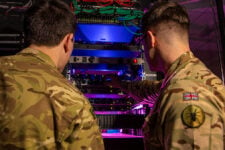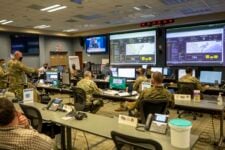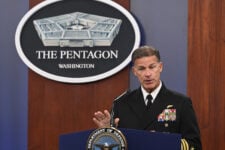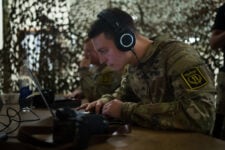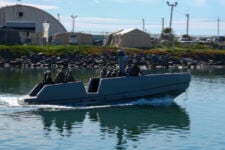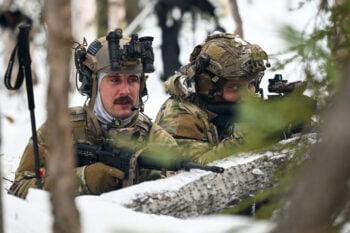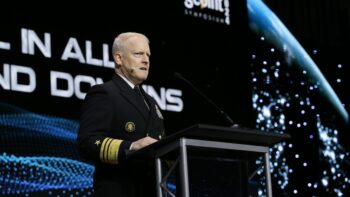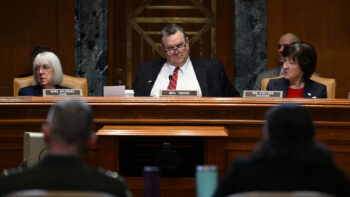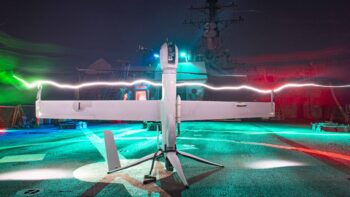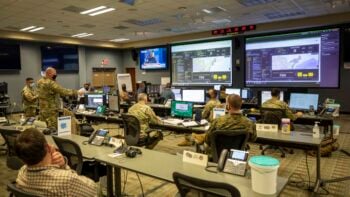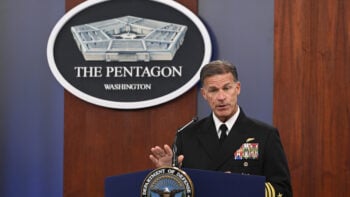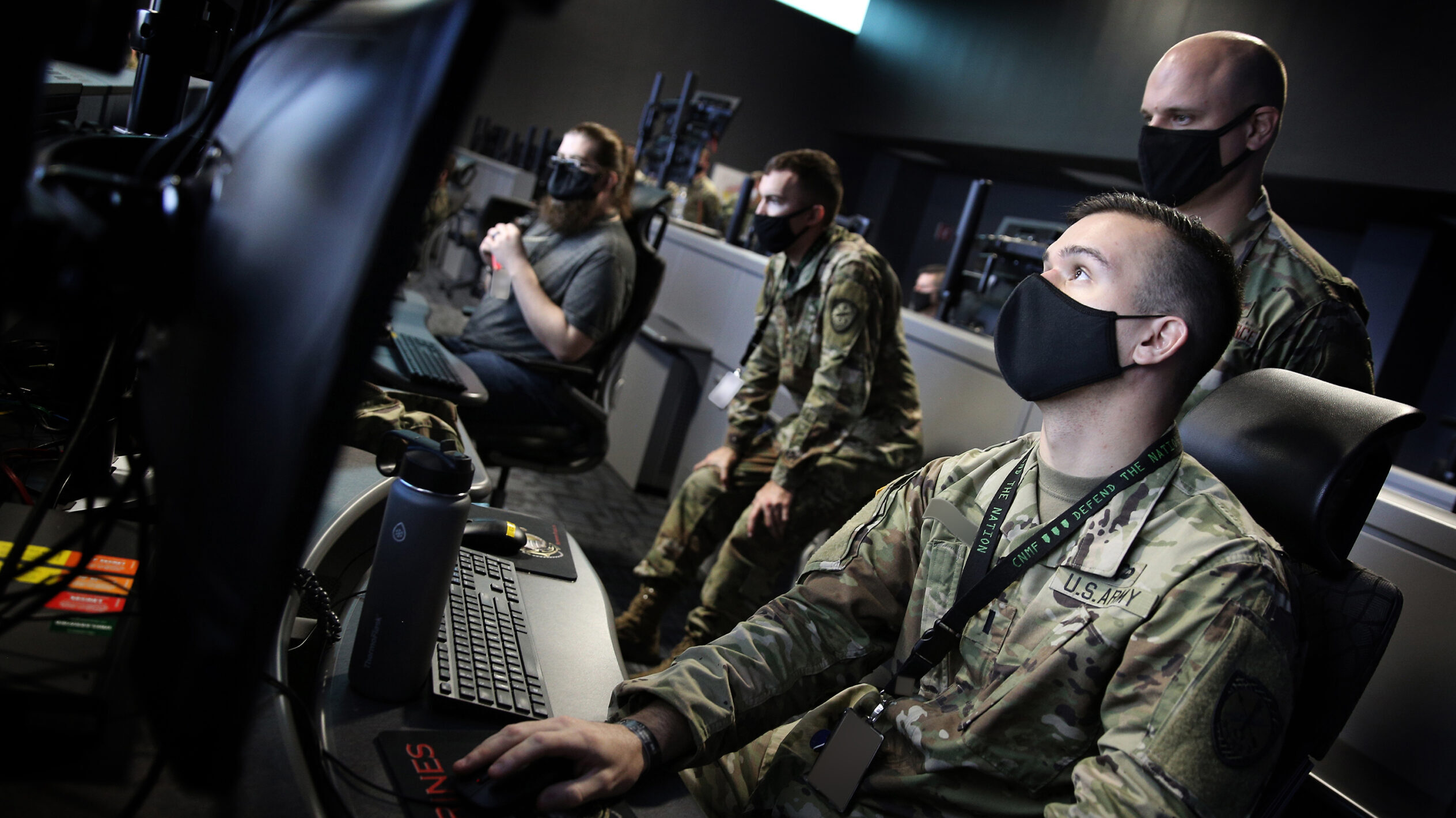
U.S. Cyber Command personnel work to defend the nation in cyberspace at Fort George G. Meade, Md., Oct. 28, 2020. (DVIDS)
WASHINGTON — After noticing “some real gaps” in its collection platform, US Cyber Command is “developing” its own cyber intelligence center that will bring together all-source intelligence in the domain, according to a CYBERCOM official, though it’s unclear when such a center might actually be established.
Speaking on Tuesday at a Billington Cybersecurity event, Col. Candice Frost, commander of CYBERCOM’s Joint Intelligence Operations Center, said that although CYBERCOM has a close working relationship with the National Security Agency and its signals intelligence work, as a combatant command, it needs its own all-source intelligence capability.
“We have found, unfortunately, that the foundational layer in cybersecurity just wasn’t there,” she said. “We know everything about, you know, a T-72 tank all the way to every nut and bolt in there for the Army. But we don’t have that for networks, with respect to all-source capability.”
The idea was floated publicly last November by Brig. Gen. Matteo Martemucci, CYBERCOM’s director of intelligence, who briefed AFCEA’s Cyber Committee on the need for the center. At that time, Martemucci said the center would help provide insight into foreign cyber capabilities and compared it to existing centers like the Air Force’s National Air and Space Intelligence Center and the Space Force’s National Space Intelligence Center.
To man the new center, CYBERCOM is working to attract a more diverse workforce, Frost said. More broadly, CYBERCOM’s approach to building its workforce “is going pretty well,” but there’s lots more work to be done.
“We have a workforce of amazing all-source analysts, but they’re kind of like me, political science majors,” she said. “And I need some that are really in the nuts and bolts that can get down to understanding hardware [and] software. And we’ve got to build that workforce, and then combine those together to build this Cyber Intelligence Center. So that is our kind of future vision of what we’re seeing going forward.”
There is no set date for when the Cyber Intelligence Center will formally stand up, Frost added, saying, “My kids might be out of college, they’re in high school, or they could be, you know, retiring. I’m not sure.”
“Things take time in the government,” she said. “But we are forward leaning in the fact that Congress asked us, do we need a center that is focused on all source intelligence to support Cyber Command in the cyber domain? And the answer is a resounding yes.”
Frost said that one area Capitol Hill seems to agree on for the most part is cybersecurity. In February, the chairman of the House Armed Services Committee’s cyber, innovative technologies and information systems subcommittee said he’d consider the idea of having a Space Force-like independent cyber military service.
Rep. Mike Gallagher, R-Wisc., said he’d “definitely” consider the value of a cyber force, but “the hesitancy on our side would be — well, so soon after creating the Space Force, we don’t want to just create a bunch of bureaucracy.
“So we can find a way to do it that isn’t a massive increase in bureaucracy that in some ways is sort of consolidation efficiently of existing cyber warriors, then it could get compelling,” he continued. “I have yet to do my own homework on it.”
NGA director pushes back at criticisms of agency, touts ‘wetware,’ tradecraft (EXCLUSIVE)
In an exclusive sit down with Breaking Defense, Vice Adm. Frank Whitworth defended his agency’s role in moving commercial and government satellite data to the field in a timely manner.


